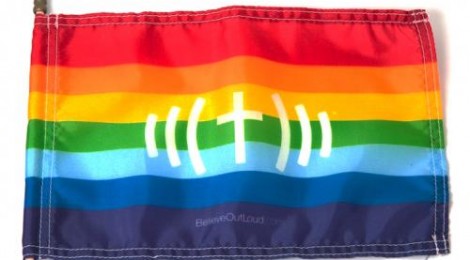
PRIDE and Privilege: One Perspective of an ally at the NYC PRIDE March
Yesterday, I marched in my first ever PRIDE Parade. Until recently, I didn’t know that such a parade existed, and if I did, I probably wouldn’t have attended. I would have been overly consumed with thinking what people might think of my own sexual orientation, and my former conservative Christian commitments wouldn’t have allowed it. However, over the past few years, I’ve taken the opportunity to deconstruct many of the Victorian images about sexuality that I’ve held religiously over the years, and yesterday, I found PRIDE to be a subversive expression of the power of being, resistance to oppression, censure and erasure, and all in all, a great time. As I marched with Church of the Village, it was a powerful opportunity to witness to God’s all-encompassing love and God’s radical welcome to all of God’s children. It was also a long wait and a long walk! I exhaustedly returned to the Church of the Village, tossed my rainbow flags onto the table, and made my way back home.
Yet, as I tossed my flags onto the table, I realized that in that seemingly insignificant act that I was doing more than just dropping what was in my hand and trying to home. In some way, I was also tossing away any tangible indication of my concern and commitment to LGBTQ persons. My research as a PhD student focuses on examining the church’s moral prescriptions about LGBTQ persons, and I belong to a fully inclusive and reconciling church, and lots of my friends are LGBTQ so of course I care about LGBTQ persons! Still, as I would walk out of the door and back onto the streets of the Village and whatever paths I would physically walk until the next LGBTQ-inclusive event, I realized that every semblance of my aligning with persons of various sexualities and being a Black and Christian and married person and woman’s voice for their centering was now gone. I would regain my own privilege: the privilege that comes with being married to a man.
But let’s be clear: as a black woman, I am not in a most favorable position within American society. Our sexuality has likewise been maligned from the moment we were stripped from our various nations through the Transatlantic Slave Trade to the present, our identities commodified and caricatures of them packaged and processed for consumption, making and remaking by media and society. As a black woman, I’ve experienced marginalization; but, as a woman that is married to a man, I know the privilege of what some might call “traditional marriage” (Side note: Whose tradition? This question requires an entirely different blog… possibly a book!).
The fact is, at the march, my being allied with the LGBTQ community would not have caused me to lose a thing. It was a safe, constructed space (for which I and I am certain many are grateful). But, it is when I, and any of us who are allies, step outside the march that it gets real. Every day we have opportunity to be in solidarity; unfortunately, when it’s inconvenient, that solidarity can be hidden or pushed aside. I’ve experienced the ostracism of being an LGBTQ ally, but only when I’ve allowed myself to: I can speak justice and love and welcome, or I can be quiet. I’ve done both. Yet, I’ve found it important in my own life to think outside of what directly affects me, to push back against my own privilege and walk with those who experience marginalization in ways I will never know. I believe this is my duty as a follower of Jesus: to care when a sister or brother is being oppressed. I am most faithful to God when I care about those who are treated as the least, even if it’s inconvenient or unpopular. Participating in PRIDE was a good thing; committing beyond PRIDE to LGBTQ persons’ right to be and to be loved by God, and doing my part to create space where their voices are heard is a better thing.
